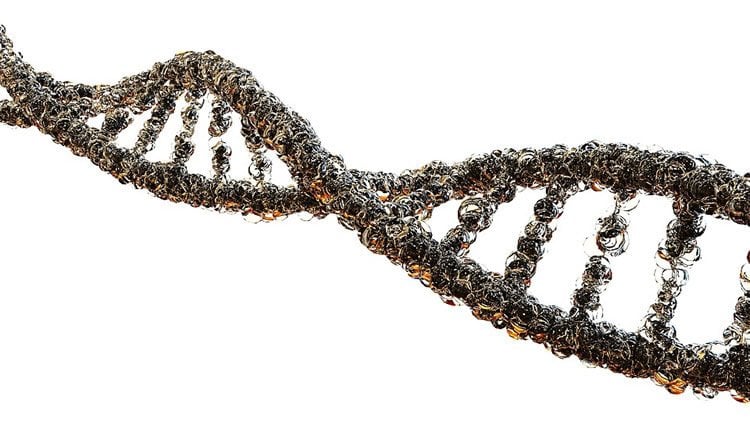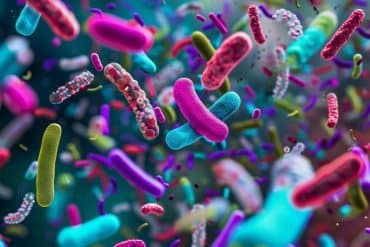Summary: A new Nature Communications study reveals 80 newly identified genes that may be linked to an increased risk of developing major depressive disorder.
Source: University of Edinburgh.
Nearly 80 genes that could be linked to depression have been discovered by scientists.
The findings could help explain why some people may be at a higher risk of developing the condition, researchers say.
The study could also help researchers develop drugs to tackle mental ill-health, experts say.
Depression affects one in five people in the UK every year and is the leading cause of disability worldwide. Life events – such as trauma or stress – can contribute to its onset, but it is not clear why some people are more likely to develop the condition than others.
Scientists led by the University of Edinburgh analysed data from UK Biobank – a research resource containing health and genetic information for half a million people.
They scanned the genetic code of 300,000 people to identify areas of DNA that could be linked to depression.
Some of the pinpointed genes are known to be involved in the function of synapses, tiny connectors that allow brain cells to communicate with each other through electrical and chemical signals.
The scientists then confirmed their findings by examining anonymised data held by the personal genetics and research company 23andMe, used with the donors’ consent.
The study, published in Nature Communications, was funded by Wellcome as part of Stratifying Resilience and Depression Longitudinally, a £4.7 million project to better understand the condition.

Professor Andrew McIntosh of the University of Edinburgh’s Centre for Clinical Brain Sciences, who leads the Edinburgh-based research group, said: “Depression is a common and often severe condition that affects millions of people worldwide. These new findings help us better understand the causes of depression and show how the UK Biobank study and big data research has helped advance mental health research.
“We hope that the UK’s growing health data research capacity will help us to make major advances in our understanding of depression in coming years.”
Dr David Howard, Research Fellow at the University of Edinburgh’s Centre for Clinical Brain Sciences and lead author of the study, said: “This study identifies genes that potentially increase our risk of depression, adding to the evidence that it is partly a genetic disorder. The findings also provide new clues to the causes of depression and we hope it will narrow down the search for therapies that could help people living with the condition.”
Source: Kate McAllister – University of Edinburgh
Publisher: Organized by NeuroscienceNews.com.
Image Source: NeuroscienceNews.com image is in the public domain.
Original Research: Open access research for “Genome-wide association study of depression phenotypes in UK Biobank identifies variants in excitatory synaptic pathways” by David M. Howard, Mark J. Adams, Masoud Shirali, Toni-Kim Clarke, Riccardo E. Marioni, Gail Davies, Jonathan R. I. Coleman, Clara Alloza, Xueyi Shen, Miruna C. Barbu, Eleanor M. Wigmore, Jude Gibson, 23andMe Research Team, Saskia P. Hagenaars, Cathryn M. Lewis, Joey Ward, Daniel J. Smith, Patrick F. Sullivan, Chris S. Haley, Gerome Breen, Ian J. Deary & Andrew M. McIntosh in Nature Communications. Published April 16 2018.
doi:10.1038/s41467-018-03819-3
[cbtabs][cbtab title=”MLA”]University of Edinburgh “Genes that May Trigger Depression Identified.” NeuroscienceNews. NeuroscienceNews, 16 April 2018.
<https://neurosciencenews.com/depression-genetics-8799/>.[/cbtab][cbtab title=”APA”]University of Edinburgh (2018, April 16). Genes that May Trigger Depression Identified. NeuroscienceNews. Retrieved April 16, 2018 from https://neurosciencenews.com/depression-genetics-8799/[/cbtab][cbtab title=”Chicago”]University of Edinburgh “Genes that May Trigger Depression Identified.” https://neurosciencenews.com/depression-genetics-8799/ (accessed April 16, 2018).[/cbtab][/cbtabs]
Abstract
Genome-wide association study of depression phenotypes in UK Biobank identifies variants in excitatory synaptic pathways
Depression is a polygenic trait that causes extensive periods of disability. Previous genetic studies have identified common risk variants which have progressively increased in number with increasing sample sizes of the respective studies. Here, we conduct a genome-wide association study in 322,580 UK Biobank participants for three depression-related phenotypes: broad depression, probable major depressive disorder (MDD), and International Classification of Diseases (ICD, version 9 or 10)-coded MDD. We identify 17 independent loci that are significantly associated (P < 5 × 10−8) across the three phenotypes. The direction of effect of these loci is consistently replicated in an independent sample, with 14 loci likely representing novel findings. Gene sets are enriched in excitatory neurotransmission, mechanosensory behaviour, post synapse, neuron spine and dendrite functions. Our findings suggest that broad depression is the most tractable UK Biobank phenotype for discovering genes and gene sets that further our understanding of the biological pathways underlying depression.







